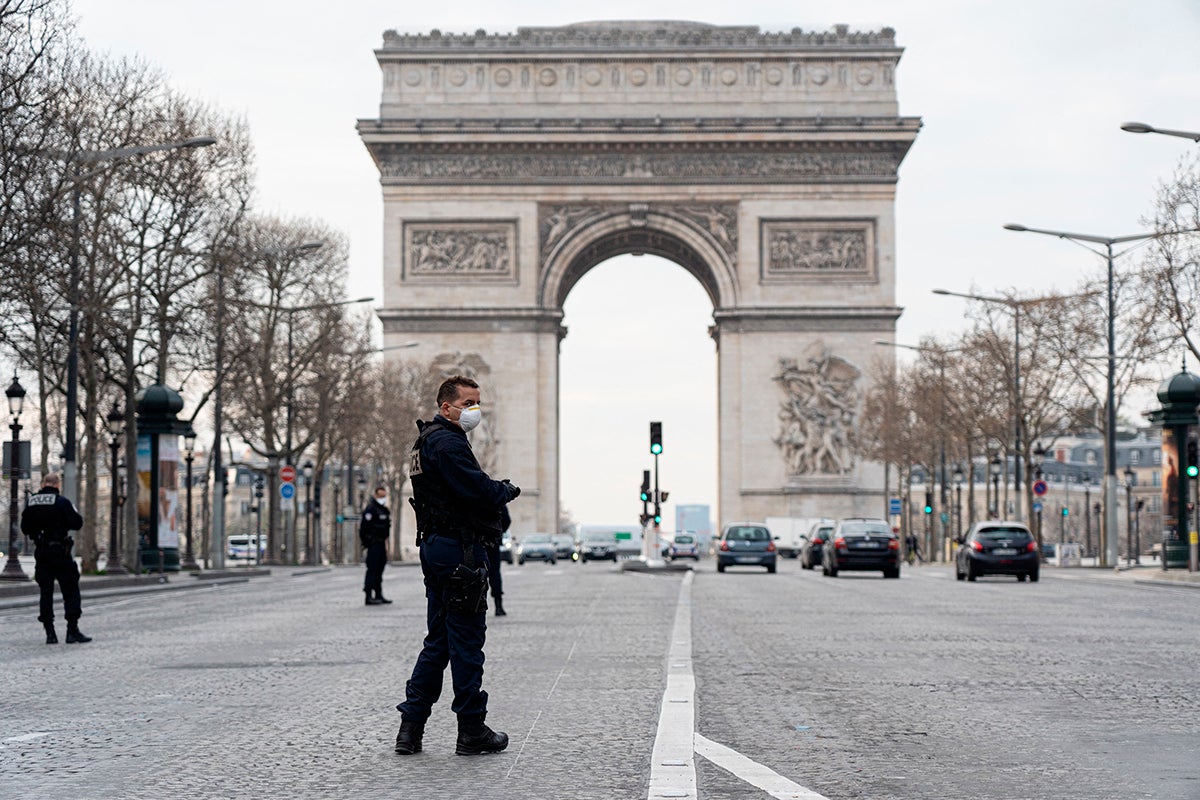Countries around the world are doing their best to try to control the spread of the coronavirus outbreak that has infected more than 270,000 people and killed more than 11,000 others.
Here’s a look at some of the measures that the 08 countries with the most cases have implemented so far.
China
China has had more than 80,000 cases and more than 3,248 deaths since the coronavirus emerged in the city of Wuhan in December. People in Wuhan and elsewhere in Hubei province have been largely confined to their homes for almost 50 days — a policy that is controlling the movements of tens of millions of people.

The lockdown began in Wuhan on Jan. 23. It happened suddenly, just before the Lunar New Year holiday, giving residents scant time to make preparations.
Within weeks, policies became stricter. As NPR’s Emily Feng reported: The provincial government in Hubei began enforcing round-the-clock “closed management” of all residential complexes, banning the private use of cars, forbidding residents from leaving their apartments without permission and requiring purchasers of cold medicine to disclose their temperature, address and identification number at the pharmacy. Many community officials began buying and delivering groceries and medication for residents in their jurisdiction.
The severe restrictions in Hubei are being credited for a decline in new cases there. But such measures might be difficult to enforce in democratic societies.
Italy
Italy has more than 47,000 cases and 4032 deaths related to the virus, mostly in the north. The number of cases there has jumped significantly in recent days.

On Monday, the Italian government announced extraordinary measures to contain the virus that first spread there in late February. Prime Minister Giuseppe Conte declared all of Italy a “red zone” — meaning people should stay home except for work and other emergencies.
Public gatherings have been banned and freedom of movement sharply curtailed. All domestic sporting events in the country have been suspended until April 3 — a big deal in soccer-mad Italy.
The primary goal is to keep people from gathering in groups. All museums, cinemas, and theaters have been closed until April 3. Schools and universities are closed. Bars and restaurants must close by 6 p.m. each day, and malls and supermarkets are closed on weekends. Moving from one town to another requires signing a police form self-certifying that a person is traveling for work, health or emergency purposes.
Italian journalist Beppe Severgnini told NPR recently that most Italians seemed to respect the restrictions. “Italy, in a way, is more cohesive than many people think. Italians are behaving responsibly,” he said. “This thing has to be stopped. The only way to stop it is to take drastic measures while we can.”
Spain
Spain has reported more than 20,400 cases and 1044 death related to coronavirus.

Authorities in regions with the most cases — Madrid, Basque Country, and La Rioja — have ordered the closure of all schools, universities and daycare centers for two weeks. Flights between Spain and Italy have been suspended and large gatherings canceled in the three regions. Soccer matches for Spain’s La Liga will be played before empty stadiums for the next two weeks.
Spanish Health Minister Salvador Illa encouraged companies to reduce working hours and travel and to support remote work.
“I know these are measures that are disliked and that disrupt the normal life of many citizens, but we are adopting the measures because they are necessary,” Illa said at a news conference, according to The Associated Press, explaining that the actions were based on “scientific evidence and on the criteria of experts.”
Germany
Germany has had more than 19848 confirmed cases and 59 deaths.
The country’s health minister encouraged canceling events that draw more than 1,000 people. A number of states have done just that. The southern state of Bavaria, for example, has already banned events of more than 1,000 people and recommended pulling the plug on events with more than 500.

“One thing is clear: all of us have a safety-first — even before economic interests,” Health Minister Jens Spahn wrote in a guest commentary for the Bild newspaper.
“Restricting public life is not an easy decision. The public is part of democracy. It shall remain that way. Therefore we must be careful and prudent.”
The city of Berlin has called off performances at all opera houses, state theaters and concert halls.
Germany’s soccer top league, the Bundesliga, announced that for the first time ever, a number of its matches will take place with no fans in attendance.
Iran
Iran has reported more than 19,644 cases and nearly 1433 death from COVID-19.
Public gatherings, including Friday prayers in Tehran and other major cities, have been canceled. Schools have been closed and crews of cleaners have been dispatched to disinfect trains, buses and gathering places, as NPR’s Peter Kenyon has reported.

On Thursday, Iranian Foreign Minister Zavad Jarif tweeted that “Strict preventive measures — including screening of air travelers at departure gates –are being implemented.”
Some Iranians told NPR they believe that their government delayed revealing the scope of the outbreak until after parliamentary elections on Feb. 21, to avoid depressing voter turnout.
A number of top Iranian officials have contracted the disease; a 71-year-old senior adviser to supreme leader Ayatollah Ali Khamenei died last week.
United States
The U.S. has some 16,796 confirmed cases, and at least 229 people have died. The federal government has not announced significant nationwide measures to contain the spread of the virus, beyond restricting travelers from certain countries from entering the U.S. Restrictions or containment measures have mostly come from state and local authorities.
France
France is likely to extend its two-week lockdown to try to slow the coronavirus pandemic as the country’s interior minister blasted “idiots” ignoring the order to stay home.

Interior Minister Christophe Castaner said French citizens were underestimating the risk. “There are people who think they are modern-day heroes by breaking the rules while they are in fact idiots,” he told Europe 1 Radio, according to AFP.
After announcing the 15-day lockdown for the entire country, the French government on Tuesday enacted a policy mandating that anyone who leaves their home must have official documentation stating their reason for being outside. All French citizens were required to download a form with their name, birthday and reason for being outside. If anyone is caught outside without the form, police have been authorized to levy fines.
South Korea
South Korea has seen more than 7,500 cases and more than 50 deaths. People in cities across the county have been encouraged to stay home, some offices have closed, and many events are postponed. The nation’s schools are closed until March 22.

The country’s largest outbreak is in the city of Daegu, which accounts for more than three-quarters of cases.
South Korea, where the number of new cases has been on the decline, has been a model of coronavirus testing. The country has 50 drive-through screening clinics where people can get a medical exam and have a sample taken in just 10 minutes. Health workers are processing up to 15,000 tests every day.
















